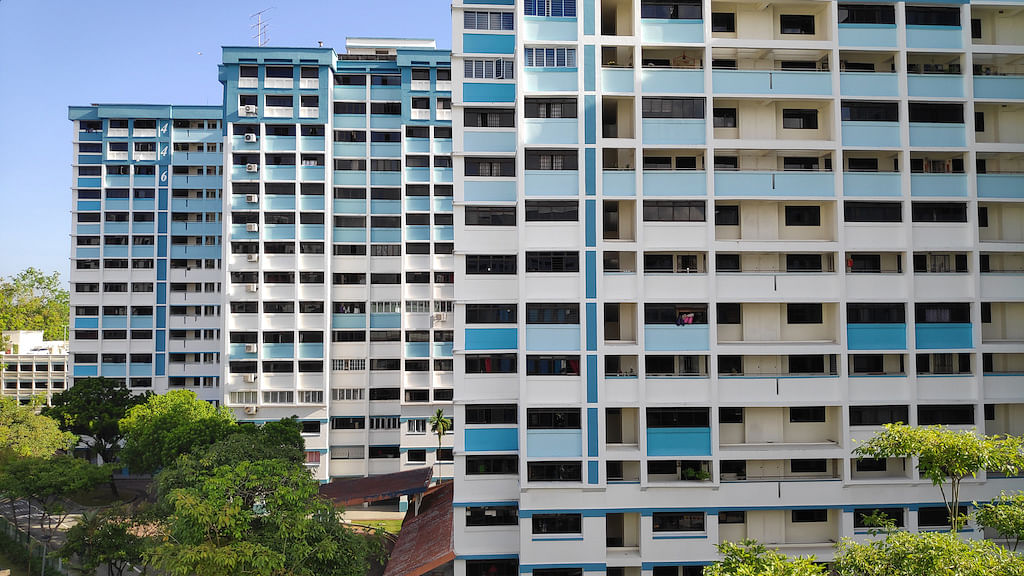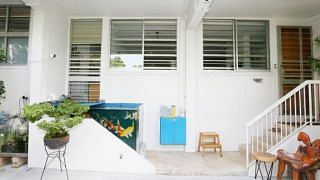These useful questions from property agents and home buyers can help you avoid buying a dud of a flat and may even get you the best bargain ever.
“Why are you selling your HDB flat?”
The first thing Low Po Yu, senior marketing director at ERA Realty Network, tries to find out is the owners’ motivation to sell. “I have been buying resale flats at record lows and selling them at record highs in popular areas such as Clementi because I’m able to better understand the owners’ motivation and work on that,” explains Po Yu, who also uses her intimate knowledge of the neighbourhood to her advantage.
“Understanding a seller’s intention to sell will aid in negotiating a good deal,” agrees Daniel Wong, associate group director, Propnex Realty. A seller, who is upgrading to a built-to-order flat or an executive condominium, and is collecting or has already collected the key to the new home, would likely be more open to price negotiation because he needs to sell the house as soon as possible. “On the other hand, if sellers are not in a rush to sell, they are usually not as motivated and will be firmer on their price, making it more difficult to get a good deal.”
Buyers: try chatting casually with the seller or the agent to gauge how desperate they are to sell. For example, one buyer shared that he bought a resale flat at a great discount off the asking price. The seller was a permanent resident (PR) who had moved back to his country. He left the home vacant for a few months because he could afford to hold on and wait for a good offer. But without a confirmed sale, the buyer deduced that it meant the seller’s agent was not guaranteed a commission despite marketing it for a few months. He was able to persuade the agent to present his modest offer in a good light and to motivate the seller to let the flat go.
“What’s the history of the flat?”
This is a question for the flat’s neighbours and tenants, if any. Po Yu says she always asks the tenants living in the house, and neighbours on the left, right, top and bottom of the flat about its history as they would be able to give you the most honest feedback. And it is worth it because you will need to live in your HDB flat for at least five years to meet the minimum occupation period before you can sell it, so you should find out everything you can about your potential new home. You will get to know your potential neighbours, too.
Also, it doesn’t hurt to ask the seller about his neighbours. For example, bachelorette Christie Ng dislikes boisterous, big crowds. Her alarm bells went off when a seller casually mentioned that the next-door neighbour had a large, extended family with several grandchildren spending the bulk of their time with the grandparents, even on weekends.
“I’m quite a private person and value my peace and quiet. After my chat with the seller, I paid extra attention to the neighbour’s home and noticed that there were kids’ bicycles and even toys spilling out onto the corridor. Of course, I decided against buying that apartment,” says Christie.
“Are there any loan shark issues with this flat?”
Agents are unlikely to volunteer this information. “Go ahead and ask the seller’s agent this question. She or he is obliged to be truthful,” advises Po Yu, who takes it on herself to check front doors, walls and lift lobbies for paint used to cover up paint splashes – a common trademark of loan sharks.
One buyer was plagued by the seller’s loan sharks for months. He had to make a police report, repaint his new door, install security cameras, and generally live in stress and fear for his young family’s safety. “It didn’t strike me to ask about loan sharks when I bought the flat from an elderly couple. I thought I’d gotten a great deal and was pleased that the seller was willing to move out at an earlier date. That allowed me to start my renovation so I could move in sooner, saving me from having to rent a temporary home. Now, I realise why they were so obliging. Their son had borrowed money from loan sharks who constantly harassed them!” laments the unlucky buyer who declined to be named.
Interestingly, Daniel once met a buyer who intentionally shopped for ‘loan shark units’. “Knowing the sellers were in debt and desperate to sell their home, the buyer managed to buy the unit at $70,000 below valuation. Thereafter, he made a police report and the police pasted a notice stating the previous owners had already moved out. The buyer got a good deal with no trouble and issues,” shares Daniel.
“Are there any enbloc plans for this block? Or any home improvement programme (HIP) to upgrade the flat And the block?”
“Asking about enbloc plans is important as it greatly impacts the buyer who is moving in,” says Po Yu. For example, the buyers may be a young couple hoping to live near their parents so they can help to take care of their grandchildren, or to look after the elderly folks.
Having to move out in a few years due to enbloc actions could seriously derail their own plans. Do take note that enbloc plans may only affect some parts of the estate such as your block, but not your parents’ block, and the new place you are offered in future may not be as convenient or close to the old folks. Similarly for retiree buyers, this may be where they hope to live out the rest of their lives. Despite a handsome compensation they could receive, some would rather not deal with the upheaval.
As for HIP upgrading plans, “it is important to ask if there is anything coming up because of the work involved, like upgrading of existing bathrooms, repairing concrete and structural cracks, new decorative doors, and metal grille gates,” adds Daniel.
Also, as the HIP is government-subsidised by up to 95 per cent of the cost for Singapore citizens, one can save a lot on renovation costs. Buyer JS, for instance, decided to delay his reno plans and saved a pretty penny by waiting till after the upgrading programme.
Do note that PR households are not entitled to the subsidy and have to bear the full cost for any upgrading work, so it may be a better idea to buy a resale flat after any HIP works is completed and already paid for by the seller. “
What kind of renovation has the flat undergone?”
“Many buyers may not know that a place is sold based on caveat emptor, which means the buyer alone is responsible for checking the quality and suitability of the place before buying it,” says Po Yu. If you do not ask, it is not illegal for the seller’s agent not to reveal any information about, say, electrical fixtures that are not working or faulty plumbing. The onus is on you, the buyer, to check everything properly before making your purchase.
“An inspection is usually scheduled a few days before the completion to make sure the unit is in order. HDB will not take any responsibility for any issues either,” adds Daniel. Tip: for a renovated unit with a lot of built-ins like cabinets, wardrobes, and lighting, it is important to ask about the accessibility to the wiring and pipes. For example, air-conditioner pipes may be concealed behind builtin wardrobes. “In the event that you need to replace the pipes because of wear and tear, you may have to hack the whole wardrobe away to access it, or incur extra cost to re-run a new piping route,” cautions Daniel, who also points out that buyers usually pay a higher price for a renovated unit.
“However, you don’t want to be caught in a situation where you pay a higher price and still have to incur extra costs for repairs. That is being penny wise, pound foolish!”














